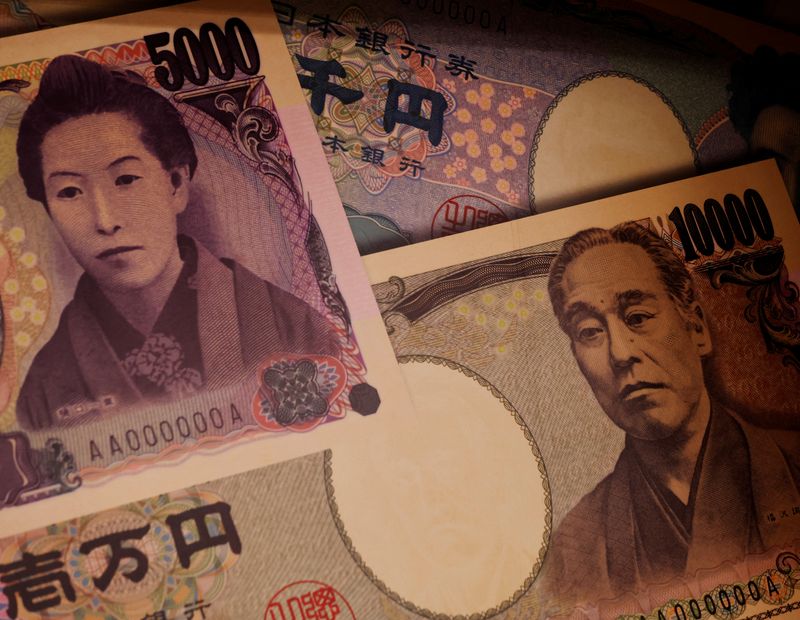By Leika Kihara and Yoshifumi Takemoto
TOKYO (Reuters) - Japanese authorities likely won't intervene in the currency market unless the yen plunges below 155 to the dollar, former top currency diplomat Hiroshi Watanabe said on Thursday.
Markets are on alert for the chance of yen-buying intervention by Japanese authorities as the currency slides near the 152 level, where they last stepped into the market in 2022.
But Watanabe, who oversaw Japan's currency policy from 2004 to 2007, said the chance of intervention was slim for now since the yen's declines have been within a broad range unlike in 2022, when the currency was falling more sharply.
While markets may be focusing on whether the dollar will rise above 152 yen, Japanese authorities likely won't see any break above that level alone as a strong enough reason to intervene, he told Reuters in an interview.
"At current levels, I don't think authorities will intervene. They probably won't step in unless the yen makes a sudden plunge below 155 to the dollar," said Watanabe who, as vice finance minister for international affairs oversaw Japan's currency policy from 2004 to 2007.
The 155 line would be a psychologically important level and a break above it would draw a lot of media attention, thereby heightening the chance of intervention especially if the yen's declines are big, Watanabe said.
"The dollar/yen is likely to move in a range of 145-155 for the time being," partly because the interest-rate gap between the United States and Japan will remain wide, he said.
The yen has been on a downtrend despite the Bank of Japan's decision last month to end eight years of negative interest rates, as traders interpreted its dovish language as signalling that the next rate hike will be some time away.
The dollar stood at 151.70 yen on Thursday, hugging a tight range after last week's spike to a 34-year high of 151.975 yen that triggered warnings by Japanese authorities on the chance of intervention.
With the BOJ likely to hold off on raising rates aggressively, Japanese borrowing costs will remain low and keep the yen under downward pressure, Watanabe said.

There were other reasons that could prevent a sharp yen rebound including the fact that many Japanese firms no longer repatriate the profits they earn overseas, and instead spend them on investment abroad, he said.
"Even if Japan's economy improves, that won't necessarily lead to a strong yen," Watanabe added.